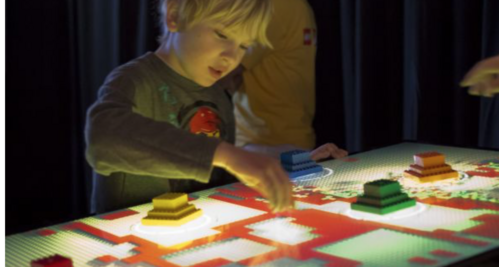The aim of the workshop is to examine and discuss how computers can support, enrich, and transform collaborative creative processes. By exploring and combining methodological, theoretical, and design- oriented perspectives, we wish to examine the implications, potentials, and limitations of different approaches to providing digital support for collaborative creativity. Participation in the workshop requires participants to actively document and identify salient themes in one or more examples of computer- supported collaborative creativity, and the resulting material will serve as the empirical grounding for workshop discussions.
Download the full workshop program here [PDF].
Through four key themes, we explore the overarching question: How can computers support, enrich, and transform collaborative creativity?
- Studying computer-supported collaborative creativity.
Studying computer-supported collaborative creativity entails methodological challenges. Which study approaches are apt for capturing and analysing collaborative creativity? How can we identify the particular role that a digital system or tool plays in the process? How can we study creative processes of different time spans, e.g. a single ideation event vs an entire creative project? How do we examine the use and impact of tools in collaborative and distributed processes, as opposed to an individual's use of a tool? Which questions do we ask when studying such tools, and how do we pose them? How do we study the potential effects of a novel system at a prototype level, as opposed to studying existing systems that are well incorporated into use situations? How can we productively combine methods to study collaborative creativity in controlled settings (in vitro) and in real-life situations (in vivo)? - Understanding the role and nature of digital tools in collaborative creativity.
Understanding the role and nature of digital tools in collaborative creativity entails theoretical challenges. Which theories can we build on when we seek to understand such tools? To which extent can we lean on existing frameworks in HCI - many of which are arguably oriented towards functional aspects and may have little to say about creative processes - and to which extent is there a need to import or develop novel perspectives? Are there well- developed strands of theory outside of the normal scope of HCI research that are particularly apt for these purposes? - Transitions and dynamics between individual and collaborative work.
Co-located collaboration in creative industries is often mixed-focus collaboration and transition between phases of tightly coupled collaboration between team members and loosely coupled parallel work during which individuals pursue own approaches or prepare their personal contributions to the joint effort. This entails a number of use-oriented challenges when it comes to the transitions and dynamics between individual and collaborative work. How can we support the interplay between these different modes of activity, and how can we help creatives transition between them? In many real-world practices, creative collaboration is a distributed, concurrent, and sometimes seemingly chaotic activity that eludes predefined sequences or rigid application structures. Is it possible to accomodate messy and unpredictable processes, and how? What is the role of spatial cognition and physical movement in space for individual and collaborative interaction? Also, which novel modes of collaboration do digital tools enable, e.g. crowd- sourcing, and how can we (re)design creative processes to accomodate them? - Mimicking existing tools and approaches and/or developing novel ones.
Creative work is often built around well-established processes and routines, and novel tools and approaches must build on a thorough understanding of how and why existing processes and structures work, and how they are embedded into the spatial and social structures of the studio. This presents us with a series of design challenges. When and how is it feasible and desirable to replace existing tools with novel digital ones, and when is it preferable to provide novel tools as supplements to existing practices? How can we - and when should we - create hybrids of existing and new tools? How do we involve creative professionals and domain experts in the design of new systems? Many existing collaborative creative work practices to a large extent relies on analogue tools, such as pen, paper, sticky notes, and whiteboards. What makes these tools so well suited for these processes, and what are the good strategies for finding the proper mix of analogue and digital tools?
The workshop requires participants to commit to capturing and documenting one or more cases in which digital tools have been employed to support collaborative creativity. This documentation forms the basis for the presentations during the workshop and grounds the subsequent discussions. In order to participate, interested parties must therefore do the following:
- Submit a proposal (2-4 pages SIGCHI Extended Abstracts Format) describing the case to be documented, the project or institutional/organizational frame (e.g. at which institution or company is it carried out and what partners are involved), the focus of the case (for instance, how a novel multi-surface tool can support collaborative ideation; how skilled practitioners have adapted a tool to fit specific needs in a work practice; how an online system has opened up new opportunities for crowd-sourced concept development, etc.), and the method and strategy for documenting the project.
- Participants must then document the case as outlined in their proposals. This work forms the empirical data for the workshop.
- Please send your proposal to Peter Dalsgaard, dalsgaard@cavi.au.dk, no later than May 10.

